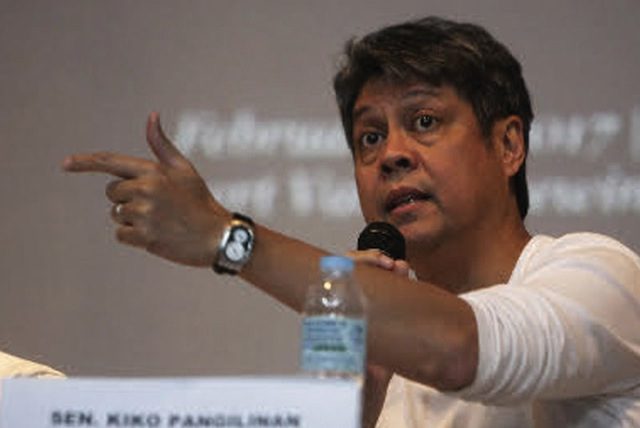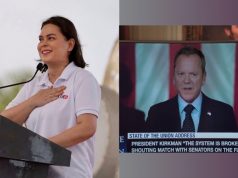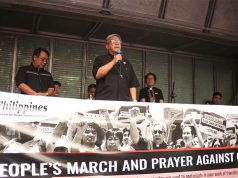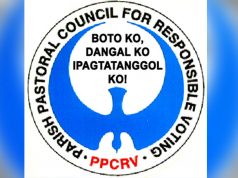MANILA – The Senate will open discussions anew on the proposed amendment or revision of the 1987 Constitution next Wednesday, January 17, after the House of Representatives finished deliberations on the P3.767-trillion national budget for 2018 and the new government tax program TRAIN.
Senator Francis “Kiko” Pangilinan, chairperson of the Senate committee on constitutional amendments and revision of codes, said the hearing scheduled at 9 a.m. will tackle three bills on amending the Constitution:
Resolution of Both Houses No. 1 by Minority Leader Sen. Franklin Drilon, Joint Resolution No. 1 by Senator Richard Gordon, and Senate Bill No. 128 by Senator Miguel Zubiri.
Constitution experts, members of the academe, business sector, labor, civil society, and other concerned stakeholders will be invited to help provide inputs in going about the needed constitutional reforms “through a transparent process that guarantees utmost participation by the nation at large,” as Zubiri’s bill expressly states.
“The way to initiate changes or reforms in the Constitution is through a deliberative, thorough, and transparent process. Everyone will have a say here and no one will be left in the dark,” said Pangilinan.
The Partido Liberal president said the hearing will seek to answer the following questions:
1. Is there a need to amend or revise the Constitution? Why or why not?
2. If so, what parts of the Constitution should be amended or revised? Why?
3. Should the amendments or revisions be proposed by a Constitutional Convention or by the Congress itself acting as a constituent assembly? Why?
4.If Congress convenes as a constituent assembly to amend or revise the Constitution, should the Senate and the House of Representatives vote jointly or separately?
5. Can Congress pass a resolution limiting the power of the Constituent Assembly or Constitutional Convention, or are their powers plenary?










